#story theme
Text
Theme and Character Development
Okay, so. Ranting time. How to find a theme, my personal run-down of what a theme is, character arc discussions, etc.
Theme is a pretty major part of a story. Even in plot-driven stories, there’s gonna be some underlying theme or lesson that an author is trying to show to an audience, even if it’s unintentional. The most basic good vs. evil, totally plot driven story will still have a theme...good vs. evil. Which is vague. But it’s enough, technically speaking, to be classified as a theme.
Stories are built to convey meaning, as well as to entertain. It’s totally fine if you put the majority of your focus on developing interesting and unique plots and characters, because that’s what’s going to hold your readers’ attention.
But your story will carry the most meaning for both you and your readers if you give your characters arcs and have a theme running through your story.
What is a theme?
The simplest way of explaining a theme that I’ve found:
The theme is the lesson or idea you’re trying to teach an audience through character development and change, without being preachy.
If all the characters are obnoxious, perfect angels who talk way too much about love and joy and sunflowers, you’ll probably just end up annoying readers. And, we don’t want to be too on the nose with it. Often, characters won’t even be able to identify their own issues and what they need to fix, but the plot will provide them with a good opportunity for them to take matters into their own hands and fix it (or make it worse, if you want to write a negative arc).
How to find your theme?
Pick whatever lesson or idea you want your audience to see. If you have a few ideas, write ‘em all down and roll with one, or even multiple if you want to tackle that.
Pick something you’re passionate about, you feel like you could improve on, you want others to come to understand, whatever you want.
Positive, negative, and flat arcs
For example, a theme could be standing up for yourself. You could have a main character who lets themselves get pushed around a lot, and through character arcs and the magical plot, they come out better and learn how to stand up for themselves. That’s a positive arc. Goes in bad, comes out better.
In How To Train Your Dragon, Hiccup learns to let go of what others expect of him, and to do what he believes is right. He blatantly disobeys his father, whom he desperately wants to please, all for the sake of doing what he believes is right. The dragons don’t deserve to die, and Hiccup learns to stand up for that.
Or, as a negative arc, a theme could be standing up for and defending yourself, but the character could, through the events of the plot, become so afraid of being hurt again that they take self-defense too far and turn to “the dark side.” Negative arc. Goes in bad or good, depending on your story, and comes out worse.
I would say Azula from The Last Airbender is a pretty good one here. She’s the perfect princess. Talented. Smart. Beautiful. She has her father’s approval, and he literally crowned her as the new Fire Lord. But it’s not enough for her. The emotional abuse has left her permanently scarred, and she can’t take it anymore. She loses her sanity and is defeated. No matter how many terrible choices she’s made, the audience still feels pity for her because of her sympathetic background.
You’ve also got flat arcs, which are less focused on personal growth within the character and more on the events around them. The character’s morals and ideas don’t shift much over the course of the story.
Basically, it often results in boring characters. Everybody likes to see their characters change, and flat arcs just don’t do it for me most of the time.
Character arcs can be as complicated or as simple as you want.
When it comes to character arcs getting complicated, that’s...the plot. So, your arc can be as simple as the plot, or it can be as complicated as the plot. They go hand-in-hand.
So if you want a simple, clear-cut character arc and a nicely packaged theme, you can keep the plot simple. Or you can make it complicated if that’s your cup of tea.
Simple. Does. Not. Mean. Boring.
If your characters are good and have interesting arcs, trust me. It won’t be a boring story. Look at Pride and Prejudice. I have no idea who first said it, but “it’s basically just a bunch of people going to each others’ houses.” It’s true. But the characters are interesting and have good arcs, and you root for them no matter how boring the exterior plot may seem.
How to know if your character has a good arc?
Compare your character at the start to how they are at the end. Have they changed in any way, either growing as a character or becoming worse in some way? Character arc. Boom. That’s it.
How to avoid being too on the nose while trying to write your theme?
Show your theme. Don’t tell it.
And story structure! We want to see a character at a low point in a story, the disaster right before the climax, or perhaps they’re offered everything they ever thought they wanted. This moment tests them to the extreme, and they have to make the choice to change in some way, either negatively or positively.
The character makes the realization and has to pick themselves up and defeat the antagonistic force in the story, whatever it may consist of, or perhaps join the antagonist force if the arc is negative?
Get creative with it.
This way, the audience gets to see the theme, the lesson, the thing the character learned, and you don’t have to be preachy. By watching that character go through everything they’ve gone through, we can see the change and learn with them.
And even if the audience can’t see the arc clearly, they know something is there. They know something about this character has changed, even if they can’t put their finger on it.
I’m not saying you should be super ambiguous with theme, but it’s okay if it’s not the clearest thing ever. The audience will still appreciate it, and those who want to can dig deeper into an analysis of the character.
#writing#writing tips#characters#oc#character arcs#writing tips and tricks#writing advice#writing reference#writing ref#writing chaos#writeblr#writing side of tumblr#arcs#positive arcs#negative arcs#flat arcs#story theme#theme#ahhh#screams#writing is a beautiful process
85 notes
·
View notes
Text

18 notes
·
View notes
Link
reedsy blog:
In literature, the theme of a story is, broadly speaking, what a book is about. They are concepts that pervade and recur throughout a piece of writing and are often reinforced by motifs.
The theme of your story can be as broad as ‘love’ or ‘loneliness’ (a thematic concept) or as specific as the idea that “greed is the greatest force in human culture” or “human behavior is the product of upbringing and experience” (both of which are thematic statements, because they express an opinion about the main theme).
Learn what a literary theme is and how you can identify it in this post by @reedsyhq
9 notes
·
View notes
Photo

Theme of Ananke
I plan to one day write an entry about the importance of the Theme of the novel. For now, I will only say that it’s difficult for me, to find the Theme. Usually, it happens only once the story is finished. I hear it’s not wrong, though.
Ananke’s Theme is:
Prevalence of Human Will over Fate
Its tag line – or one-sentence summary, if you will:
When two rivals are faced with an inevitable disaster, they overcome their animosities to prove that human minds can beat destiny.
The theme is incorporated in the story’s title – Ananke. Or rather, I should say, the title dictated the theme, because it was first, after all.
Ananke is a Greek primordial goddess. Older than Zeus and all the Olympians – and stronger, too. She was the daughter of Hydros, god of primordial waters and Gaia, Mother Earth, a sister to Chronos, god of time, and Phanos, god of light and new life. Mother to Moirai, the Fates, and to Chaos.
She is a personification of necessity, inevitability, absolute compulsion, the force compelling mortals – and most of the Olympians – to submit to the verdicts of Destiny.
I don’t believe in Destiny. I don’t believe our fate and our future is predetermined by the will of any supernatural being or force. Instead, I believe we all shape our lives and the only outside influence, comes from the will of other people around us. Oh, alright, and the nature, but nature doesn’t have a will of its own. It simply exists around us, following the rules of physics, and chemistry, and biology and other sciences.
Among all that, all those influences, it is us, human beings, who decide; who choose how to react to all that happens to us, and through those choices – shape the world.
Those choices, those decisions, lie at the foundation of my story, Ananke. A story, where a spaceship seems to be heading towards an inevitable disaster and yet, the decisions of a few humans, and their determination in following through, save the ship. A story where one man chooses to sacrifice himself, because he believes he’s been living on “borrowed time”, and the other convinces him that it is just a choice he’s making. And that he can make another – to continue living.
Now, having figured out that theme, I know that the ending doesn’t fit with it. The very ending, I mean, like, a few final paragraphs. I don’t quite know why I haven’t fixed it yet, but I should get to it shortly.
Thank you for reading.
(read more on WordPress)
#original writing#writeblr#science fiction novel#science fiction#original novel#greek mythology#destiny#story theme
2 notes
·
View notes
Text
Danny Phantom, The Show:
geeky kid gets super powers from his parents' weird inventions! now he has to fight a rogue gallery of ghosts... but uh-oh! he still has to keep his grades up, deal with his embarrassing parents, and navigate girl troubles! rap theme song!
Danny Phantom, the Fandom, After 19 Years of Fermentation:
a child dies. but not quite. the inherent tension between life and death. the obsession of the dead for faded remnants of the living. warped green shadows on the walls of a dark laboratory. having to hide your true nature from those who should be your greatest allies. the fear of the monster you could become if you let yourself. being a ghost as a metaphor for the trans experience. a cold breath on the back of your neck in the dead of the night. rap theme song!
#also wes is there#danny phantom#okay okay i'm exagerrating on both points obviously#it's been a LONG time since i watched the original tv show#but of course it had elements of these deeper themes and that's why the fandom's lasted so long#but it was a mid 2000s cartoon when serialised storytelling in western animation was still in its infancy#the fandom has spent a long time leaning into the story lines and themes that never would have flown then
16K notes
·
View notes
Text
Mr. Riordan, it is truly a pleasure getting to experience your second draft.
#seriously tho what an amazing thing for an author#to get to revisit your series years later#and get to make all the tweaks now that you know exactly where the story is going#to go back with your theme crystalized in your head and say 'ok now this time on purpose!'#kiddo and I are enjoying the PJO series immensely#love demigods#wish adhd was real#now excuse me while I add 9 billion tags#percy jackson#pjo tv show#pjo#rick riordan#percy jackson and the olympians#disney+#pjo series#percy jackson tv show#does this need to be tagged as a spoiler? I don't feel like it does#the suggested hashtag being spelled wrong is just *chefs kiss*#love that for us#anyway if this needs another tag tell me
7K notes
·
View notes
Text
twitter is broken today 😭 are there any other ways that people search for anthologies to apply to?
18K notes
·
View notes
Text
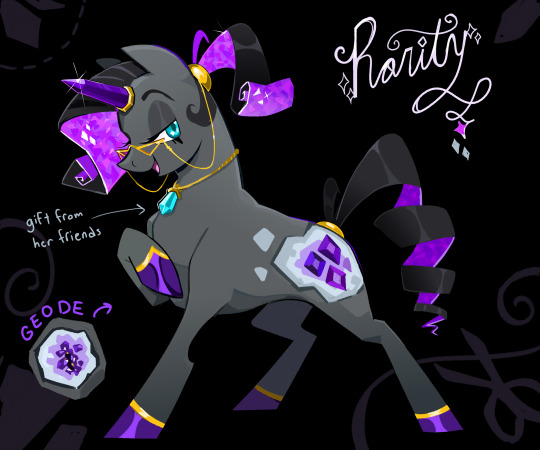
I have been wracking my brain on my mane 6 redesign for the past week. Here's my ideas for Rarity!! RD is up next >
#mlp#mlp fim#rarity#my little pony#my little pony friendship is magic#okay i am a dark color palette rarity truther#and i thought geodes were a good theme for her because of inner beauty + crystals etc plus her cutie mark story#but really i just wanted to draw rarity with a crystal horn and hooves and hair lol
4K notes
·
View notes
Text
i love the extras of dungeon meshi in how it fleshes out the world because they make it so much more evident how race affects every part of the story while avoiding the zootopia racism problem. like obv a main theme of the story is like, humanity and desire, 'to eat is to live', etc, but since the majority of it takes place in the dungeon isolated from society and thru the lens of laios, the racial aspects play out more like shadows on a wall for most of the story.
then in the extras we get comics like this

which at a glance fleshes out the racial aspects via a character explaining the racial rules of universe - humans have x amount of bones, while orcs and kobolds have more. however, if u take it less straightforwardly, it points out how the concept of 'human' is a constructed concept in the world. the fact that there are different categories of human in different parts of the world based off of what types of humanoids occur there is already a demonstration of this. in response, the bones explanation seems to kabru and the characters as an objective way of measuring humans vs nonhumans.
but obv, when the culture was deciding what humanoids were humans and nonhumans, they weren't blindly analyzing skeletons and then deciding. just visually, one can glean that orcs and kobolds look less like the ingroup of tallmen, elves, dwarves, gnomes, etc. the bones explanation appears as a justification for that immediate prejudice under a scientific guise - I'm sure that one could come up with the same number of physical differences between a gnome and an elf that they would find between a tallman and an orc. it sounds a lot better to say 'well, an orc has 230 bones while a human has 206' then 'well, an orc looks ewwww yucky yucky to me while a human looks normal'.
and what i like abt the comic is that the characters take the explanation at face value for the most part. when a contradiction is brought up in the oni, kabru can neatly slot them into the predetermined number of bones framework. bc that's kinda how it works irl - there r cultural prejudices that we can posthumously justify, and if we find something outside of it, we can twist it to fit into our predetermined binary. however, since the reader does not live in a world where there are orcs and kobolds to be prejudiced against, we can see that flaw in the cultural logic. when the party encounters the orcs, the number of bones has no bearing on their humanity. They r shown to be cliquish and distrusting of outsiders, but not any more than the elves are later in the story.
tldr dungeon meshi worldbuilding is so good
#just me#dungeon meshi#kabru#there r 10000000 examples of how fantasy racism affects the story of dungeon meshi not brought up in the main story#like namaris backstory and chilchucks union and the oni#augh. tasty manga#girls when themes of social isolation#ppl talk Abt the neurodivergent rep/allegory#the racial allegories aren't half bad either#social isolation guys social isolation
4K notes
·
View notes
Text
honestly love when artists draw copious amounts of fanart for a character and then start adding more and more personal touches or headcanons to how they depict them and then just change their name and adopt them as an original character. its like watching nature heal in real time
#personal#like its simply the best option. theyre yours now!#inches away from doing this to r***** ****** and e**** ******** . i need to get them out of there now !!#think i may infuse some of their Themes and Narratives into augusts story#we'll see idk. i love talking about things and then not following through. gotta have some whimsy yknow#oh to be clear i havent drawn fanart of r***** or e****. they are just on my mind always
10K notes
·
View notes
Text
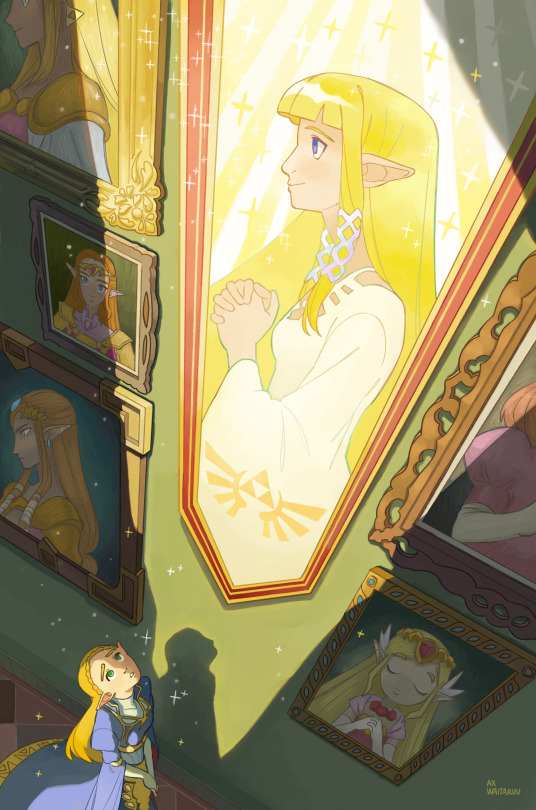
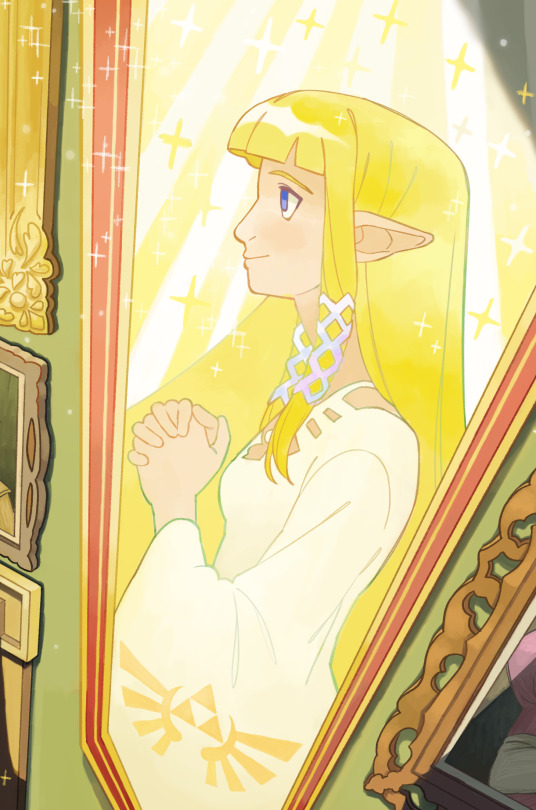
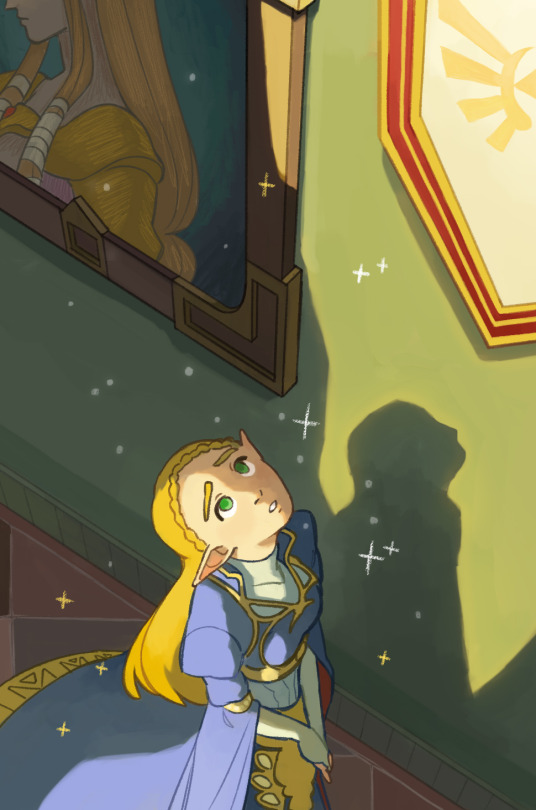
Legacy✨👑
#I love the implications of the skyward sword story and themes on botw and the opposite zeldas being the fist and last chronologically#very happy with this compo :)#tloz#zelda#the legend of zelda#botw#totk#skyward sword#breath of the wild#tears of the kingdom#fanart#art#digital art#illustration#artists on tumblr#loz#myart
36K notes
·
View notes
Text
The Fall of the House of Usher is many things and I'm making a conscious choice to not scream about every single one of them rn, but what left me staring at a wall in tears is just... kindness. Death was kind. She gave every choice, every reason to stop. She would take these kids anyway but she also regretted having to take them like that. She cared when nobody else would, even though they kept making the wrong choices.
She's never cruel for cruelty's sake. She wasn't cruel to Lenore. She just sent a child to sleep as lovingly as she could, with kind words and kinder touch.
And I don't even know how to express the absolute heartbreak with blinding warmth among the cracks, when Death herself kneels before one man, worst man, honest man, who refused her offer – and thanks him with such respect.
Mike Flanagan, you fucking did it again. Carla Gugino, you... I don't even have words for you. That's a whole-ass masterpiece of human soul, meaning, and searching right there.
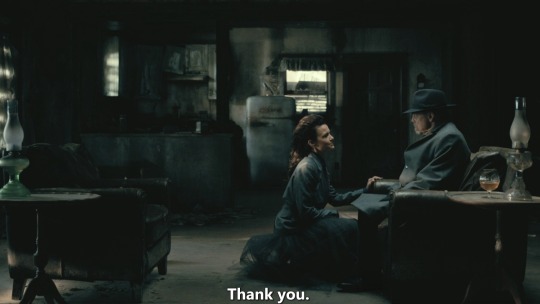
Kiss Death with kindness in the end
And when she parts
You part as friends
#i keep spinning it in my head#when you least expect it they kill you with kindness dammit#there's also a billion of other important themes here but they get more or less talked up#and i just wanted to say this#god what a beauty this story holds#the fall of the house of usher#tfothou#tfothou spoilers#tfothou tv#mike flanagan#flanaverse#carla gugino#netflix
5K notes
·
View notes
Text
i dont think i will ever be over dragon age 2. like. bioware made an epic fantasy story about a chosen one having to save a country and stop the apocalypse and then they made the second installment of the series be about the sociopolitical climate in ONE city through the lens of a family of refugees fleeing from the war of the first game and just. made it about political tensions and class dynamics and the influences of living in a church-mandated state and the growing tension over an occupied piece of the city and political killings and interpersonal conflict and power and its story is ENTIRELY character-driven. it has easily the most iconic set of companion characters. the premise of living through a story told over the course of ten years and knowing from the start that something really bad will happen in the end was so fresh and exciting. the fact that the acts really built on top of each other andhow much the city changed over time. and the game was so mature in terms of the topic of fighting against oppression in so many ways (im usually generous and say that the short development time left some things a bit wanting), and as much as some people say that the game treats mages and templars as being equally bad, i don't think that that is actually true about the game and it very earnestly tries to grapple with some pretty complex political dynamics.
and then the game completely flopped financially and was almost universally hated for its queer themes and its sympathy for "terrorism" and a lot of the things that stemmed from basically having no production time at all and then the studio just made another epic fantasy story about a chosen one that has to save the world from the apocalypse
#myposts#da#dragon age#i feel like. dragon age origins is dark fantasy. dragon age 2 is a political thriller that is at times too really dark#and dragon age inquisition is a fantasy game with a moral complexity suitable for 10-year-olds#whose themes are all over the place and that has zero thematic coherence or any real vision for what the fuck they are doing with the story
3K notes
·
View notes
Text
I think the biggest disservice bg3 fans do to Wyll is by making him out to be the ‘normal’ guy. He’s easily the most unhinged person there. He’s like ‘look, Father! Would a catastrophic disappointment do THIS?’ And gets one of his limbs turned into a giant tentacle or smth to save a box of kittens. Exposed to Mizora and didn’t become a misogynist. I heard him say ‘huzzah’. I want to study him.
#bg3#’hm wylls story was a little less satisfying i wonder what his themes are and how a better conclusion would have looked’#<i’m crazy now#wyll ravengard#dis.txt
3K notes
·
View notes
Text
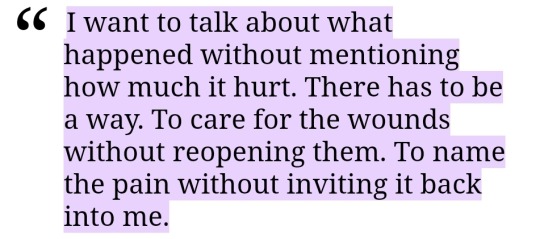


Richard Siken, "The Torn-up Road" // Lora Mathis, "If There's A Way Out I'll Take It"
#theme: to tell a story is to re-open a wound#web weaving#webs#web weave#webweave#poetry#aesthetic#prose#prose poetry#art#collage#literature#book quotes#books#novel quotes#novels#quotes#excerpt#poem excerpt#poem#richard siken#lora mathis#compilation#parallels#inspo#words#writing#trauma#storytelling#old wounds
3K notes
·
View notes
Photo
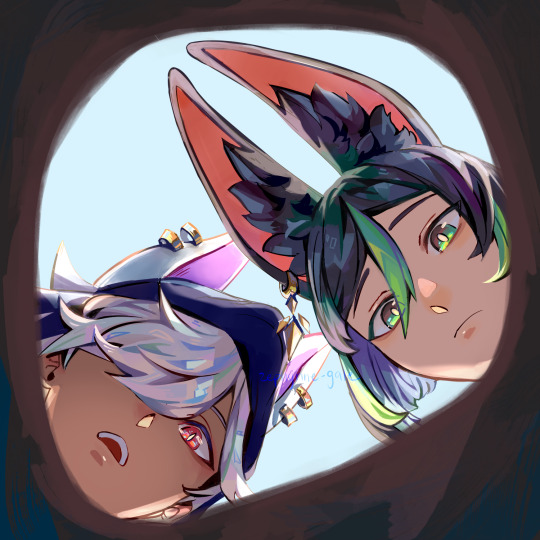
pov: you fell into a hole in sumeru and the doggo boys find you
#cyno#tighnari#genshin impact#my art#adjfgjh i was supposed to make this a gif but i rendered it too much#i love how big tighnaris ears are they look so pettable#v excited to see what their part in the story will be!!#although lowkey the chars in this region have the most confusing aesthetic i legit dont know what the theme is
34K notes
·
View notes